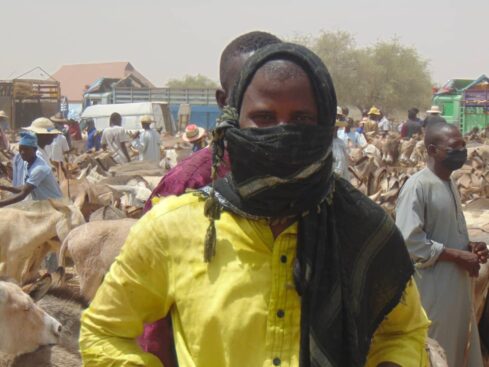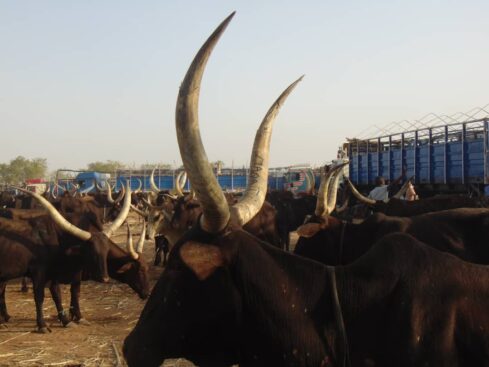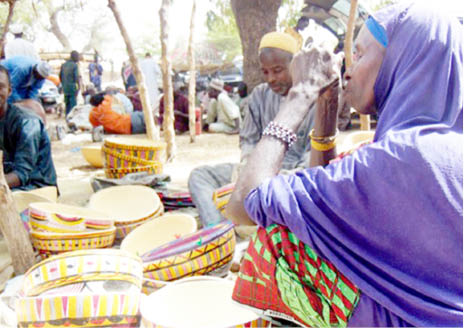Daily Trust Saturday visits border markets and communities across Katsina, Jigawa and Sokoto states and explores the social and economic costs of the recent border closure in areas famous for horse, cattle and grains economy.
It is a land of baobab trees and historical figures. Locals fetch water from the nearby well, expressing themselves in Hausa. Their village lies exactly 15 kilometres away. Plains stretch into the distance and are a delight to the eye. Then there are the markets, such as the MaiAdua International Market, as well as those of Maigatari, Garki, Daura and Illela, where a visitor can witness the matchless energy of Nigeria’s rural markets. Calabashes which are smoothened, painted and beautified in the markets by dedicated artists form part of this energy and highlight just one detail of the cross-border economy.
On the Illela-Sokoto road are hundreds of onion stores or barns, which help to define the landscape. This is an onion farming country. All these communities were impacted when the Nigeria-Niger border was shut.
Total collapse

“Our economy has completely collapsed on account of the border closure. There are fewer horse dealers today, unlike before. Now, there are not up to 100 sellers here. In the past we had more than 3,000 sellers coming here every market day,” remarks Alasan Jobi, the chairman of Horse Sellers Association, Maigatari International Market, Jigawa state, in an interview with Daily Trust Saturday in early March.
400 camels rustled
Nigeria’s border with Niger Republic was recently shut by the Economic Community of West African States (ECOWAS) as a fallout of the coup in the latter country. This crippled economic and social ties, fueled rural poverty and made many to eat once a day or not at all. Shut borders mean a good number make use of illegal routes as they convey goods or cattle, and some encounter bandits while doing so. This is very true of Illela in Sokoto State where over 400 camels were rustled recently, according to a camel herder/dealer who spoke to Daily Trust Saturday at Illela market.
‘Damagaram’

In Illela, the chairman of grains dealers speaks of targeted assassinations against members of his group as they travel through the border area. Meanwhile, in Kongolam, Katsina State, teenage boys convey luggage to nearby Maimujiya in the Niger Republic.
‘Damagaram, Damagaram’, they chant as taxis arrive at the Kongolam motor park. The boys mention that they use wheelbarrows and push their loads along an illegal route throughout the day. Four boys will push a fully loaded wheelbarrow to Maimujiya, a 15-minute’ walk for N2,500. Then they return to Kongolam to await the next taxi and when it arrives they begin to chant ‘Damagaram, Damagaram.’

